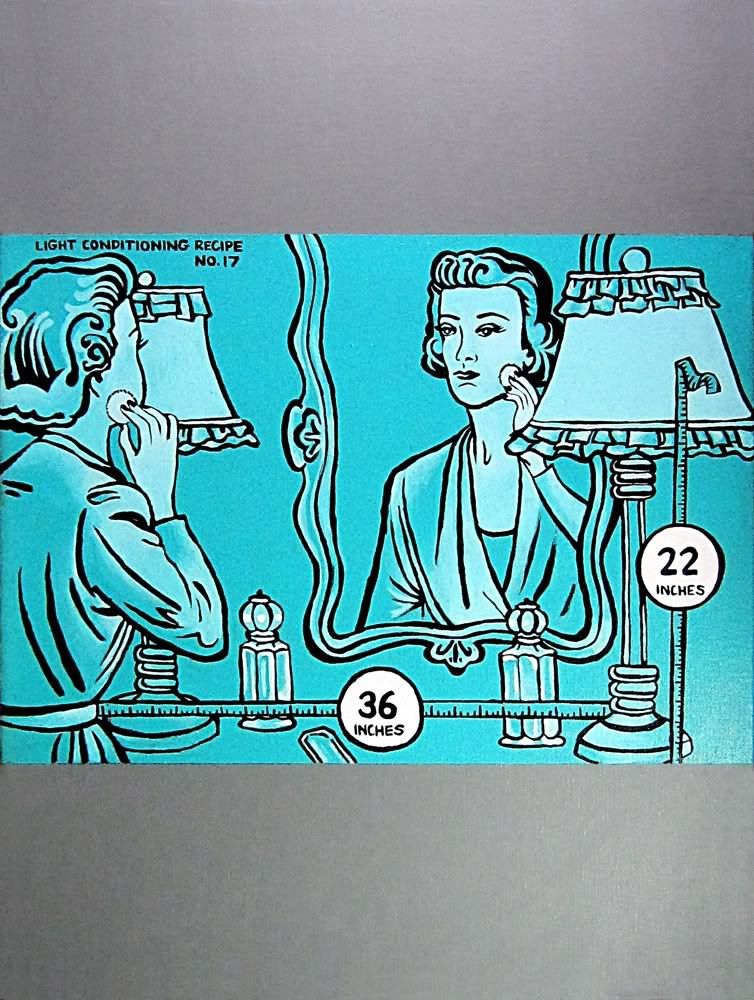The Light Still Needs Conditioning- Come and Get It!
It's grand to be grand. This Light Conditioning Recipe will hopefully fill you with ennui as much as our heroine, who sits before her mirror exquisitely bored.
I wrote about the new Apple Records re-release for December's Northside and fashioned it into a truly shameful excuse to hero worship Terry Southern in a public forum.
XO
Sharon


Now out on CD, Come and Get It: the Best of Apple Records
By Sharon Anderson
“Did I hear you say that there must be a catch? Will you walk away from a fool and his money?” - from the song “Come and Get It” by Badfinger
"We created Apple so someone wouldn´t have to go down on their knees in an office - probably yours." -John Lennon at a press conference for Apple Records
The song “Come and Get It” was originally recorded by Badfinger for the soundtrack to the 1969 film The Magic Christian. A psychedelic, comedic romp, The Magic Christian, written by Terry Southern, featured Peter Sellers as Guy Grand and Ringo Starr as his adopted son, Youngman Grand. Full of black, satirical humor, the films’ two anti-establishment heroes shock and puzzle their victims by squandering huge amounts of money and bribing them to perform hideous acts. As a protest against materialism, The Grands test human motivation to prove that, as Seller’s character says, “Everyone has their price”.
The Soundtrack, Magic Christian Music, was released on Apple Records. Lennon’s caustic remark about people having to “go down on their knees in an office” reveals Apple’s modus operandi: That is, artists should not suffer humiliations just to have a recording contract. Guy and Youngman Grand couldn’t have said it better themselves. There must be a catch, right?
Created in 1968 by the Beatles, Apple Records was a platform for emerging talent. Some of their recording artists went on to have award-winning careers, and some remained known only for their moment in the limelight sponsored by the most popular band in the world. Unfortunately, fame and success are not contagious. Not everyone ended up with a stellar career, but that was never the point. As idealistic young men, the Beatles had the power to promote what they believed in, and if it caught fire, so much the better.
In its early years, Apple was an immediate success with hit singles in the US and UK, and with a quarter of its singles hitting the charts. The 1970’s brought some financial setbacks apart from the successful ex-Beatle solo works that Apple continued to promote. The label, with fits and starts, eventually found new life after 2006 when they settled Apple Corps vs. Apple Computers. In 2010, Capitol announced plans to re-release Apple’s back catalogue, a moment of triumph for music collectors who have been hunting down these sought-after recordings for over four decades.
But till then, try a little bite. This highly anticipated CD collection offers an eclectic and inspired assortment of recordings from James Taylor, Mary Hopkin, Jackie Lomax, Badfinger (as well as their prior band The Iveys), Brute Force, Billy Preston, Hot Chocolate Band, the Radha Krishna Temple and others. As a progressive, artist-oriented label, Apple helped define the pop sound of the late sixties and early seventies.
I wonder if it would happen today. Would a music label promote what they liked just for the love of the art form? What a grand idea.
Sharon Anderson is an artist and writer in southern California. She can be reached at www.mindtheimage.com